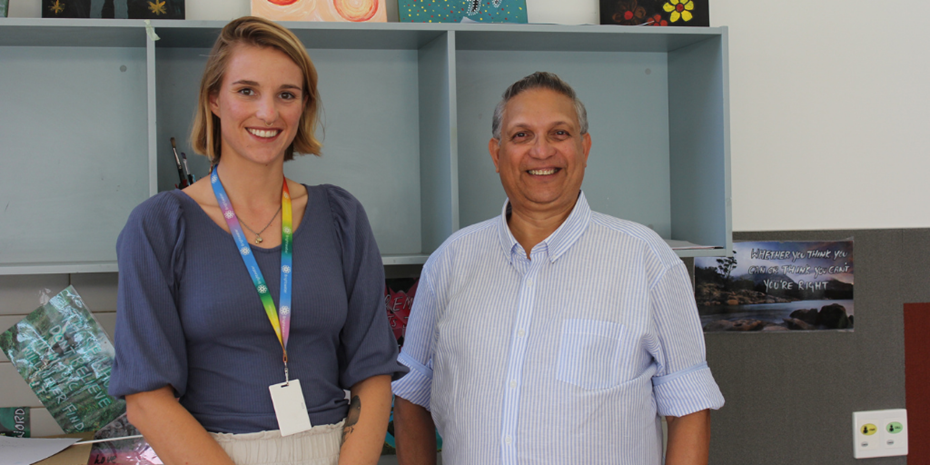
There is a growing recognition that our spiritual needs are just as important as our physical and emotional needs, even for those who do not have a particular religious belief.
In 2016, Australia became the first country in the world to adopt the National Guidelines for Spiritual Care in Aged Care. The guidelines suggest that while spiritual care means different things to different people, ultimately it is not just about faith, but about life purpose, experience and connections. They also outline practical ways that aged care providers can support their residents’ spiritual needs.
At Brightwater, Keith Bocks has been working on a project to do just that.
“Spiritual care is being there to provide support, giving time to listen to people and having conversations about their emotions and their spiritual concerns. It’s also about helping them cope with their struggles and find purpose in life,” said Brightwater Oats Street Counsellor, Keith Bocks.
As a counsellor at Brightwater Oats Street, Keith has been working for several years providing pastoral and spiritual care for residents with Acquired Brain Injury. Last year, he was awarded the 2020 Peter Lane Scholarship to develop a best practice model for pastoral care that could be implemented across other Brightwater homes including aged care residences.
Together with project officer Kimberly Carson, Keith has been examining what works in his current approach to pastoral and spiritual care as well as what could be improved. They have visited Fiona Stanley Hospital (FSH) to learn how their pastoral care model works, and they heard that many FSH residents who benefit from spiritual care do not identify as religious.
“This has allowed the spiritual care team to adopt programs to aid spiritual health that are not specifically religious in nature, such as music lessons. It also prevents the team from overlooking non-religious residents who may nevertheless benefit from spiritual care.”
Excerpt from Keith Bock’s Quarterly Report, ‘Develop a Best Practice Model for a Pastoral Care Service’
In developing the Brightwater model for pastoral and spiritual care, Keith is also conscious of the importance of addressing the needs of staff and families as well. At Oats Street he invites families to a monthly group where they have the chance to ask questions about their loved ones’ experiences and voice any concerns. The meetings are about supporting families who are also going through a major life change and can be at risk of feeling isolated as a result.
“We invite the families to find out how they are managing, how they are coping and what help they need. It helps to give them a picture of what happens during the week when their family members are engaged in their rehabilitation work. So we try to explain this during a session, just over a cup of tea in a really casual setting,” said Keith.
Project Officer Kimberly Carson says misconceptions about spiritual and pastoral care can be one of the biggest hurdles in reaching those people who might benefit.
“I came in not really knowing what to expect, and with a lot of misconceptions about pastoral care being very religious. I’ve learned that a lot of it is emotionally focused and even the definition of spirituality exists outside religion. So we’ve been discussing how connection to community and to body can be spiritual experiences that can be of value to people at Oats Street. We want to understand how we can expand the program to incorporate what might be really valuable spiritual practises for people that I wouldn’t have defined as spiritual before doing this work,” said Project Officer Kimberley Carson.
“I would look more at the life of the person rather than lead them down a religious path. My goal is to help people understand, your life matters, you are valuable - how can I encourage you and help you on this journey of life? If you are interested in the spiritual, I’ll help you there but if you are not, it doesn’t matter - your life matters. Because I’m passionate about people, I’m concerned about you,” Keith explained.
Keith says he and Kimberly will complete their report on the best practice model for a pastoral care service later this year. But he knows already what’s most important in the work he does.
“It’s the love for people - you can’t do it if you don’t love people. My belief is to love one another. I just love seeing the joy that I can bring in whatever way I help people. It’s just wonderful to see the inner joy and peace people find when they know that they are loved and valued, and this helps them to find purpose in life and the will to go on. This is my goal and desire for those I serve.”


